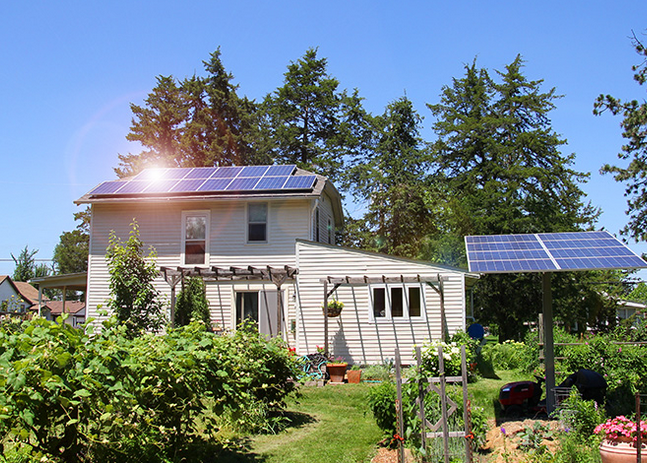
Are you wondering how to grow organically? People all over the United States are getting involved in organic gardening so they can provide safe, healthy, low-cost food to their family. Gardening for delicious organic food is happening everywhere from backyards in Florida to window boxes in Maine. To get started, however, it’s a good idea to start by answering the question, “exactly what is the organic way of gardening?” While many people have different ideas about this, a basic definition is easy to agree on: It’s a form of gardening that does not allow the use of synthetic fertilizers or pesticides. While this is a very rewarding approach to growing plants, it can also be quite challenging!
Pesticides
There are a limited number of pesticides permitted in organic gardens, but without artificial chemicals to rely on, would-be organic gardeners need to learn the ins and outs of cultivating an entire ecosystem that will naturally support their plants. This requires them to learn a lot about their crops, the soil they have available, and possible pests that could harm their crops. It all begins with choosing the right seeds for your vegetable patch. Some of the easiest crops to grow organically include mainstays like tomatoes, lettuce, onions, and strawberries, though of course, you should choose crops that will flourish in your climate and soil type. Companion planting can be a smart way to optimize the use of your space, but knowing what to plant and when is also key. For instance, clover, oats, and buckwheat flourish in the summer, while many beans and peas prefer winter.
Preventing Weeds & Insects
When you’re considering how to start an organic garden, you need to give consideration to insects and weeds that could prove problematic. That starts with learning about organic pest control and removal and discovering which garden insects tend to be helpful. In organic gardening, it’s impossible to completely eliminate pests and plant diseases, but you can go a long way toward minimizing problems by encouraging beneficial insects that prey on pests. How do you do it? Incorporate plants that produce the pollen and nectar that these insects crave. If you’re finding that pests are gaining the upper hand, you can actually purchase eggs or larvae for many beneficial insects from your local specialty gardening shop. It may still take a few weeks before you notice a difference, but the end results are well worth it!
Ready to start your landscaping project?
Find ProsWeeds can be a serious issue in organic gardening. Rotation, mulching, and weeding can all help protect your plants from harm. Some good mulching materials include compost, wood chips, pine needles, grass clippings, shredded leaves, and aged sawdust. In small amounts, black plastic or clear plastic can also be used to keep weeds at bay. Crop rotation of different plant families will improve the soil’s ability to maintain growth: Switch between members of the lily family, squash family, carrot family, beet family, and cabbage-mustard family regularly for best results. Intercropping can also help: For example, pair shade-tolerant plants under those that love sunlight, fast growers with slower growers, and those with deep root systems alongside those with shallow roots to maximize your yield.
Over-Wintering
Virtually any organic gardener will eventually have to make plans for over-wintering. Over-wintering can be tough at first, but with a little bit of experience, you’ll be able to get better and more efficient results. In an organic ecosystem, the soil needs to be protected during the winter or its ability to support crops in warmer seasons will be compromised. Many gardeners turn to burlap as a lower “guard layer” for the soil, piling mulch made from garden debris on top. Throughout the winter, it’s important to check the soil for moisture, which might indicate whether the burlap is improperly placed.
Conclusion
Now you know the basics for getting started in organic gardening, but there is always more to learn, and plenty of people are eager to share their knowledge with those who are just starting out. Try the USDA’s tips for organic gardens, or read advice from expert organic gardeners. Some colleges even offer advice for those looking to get their feet wet in the world of organic gardening. No matter what your gardening approach, you should have aim to fun and remember to allow yourself the time and the freedom to make mistakes while you learn the ropes. Within just a few growing seasons, you could find yourself with several pounds of delicious, nutrient-rich organic food every time it’s harvest time around your home!
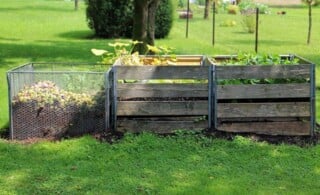 Composting and Landscaping at Home
Composting and Landscaping at Home 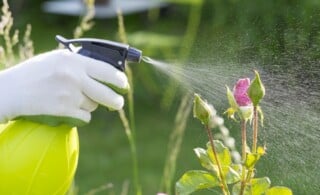 Gardening Hacks to Protect and Nourish Your Plants
Gardening Hacks to Protect and Nourish Your Plants 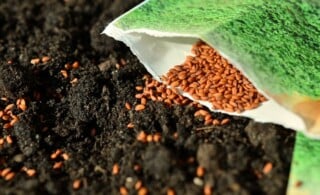 Home Gardening Tips: From Composting To Herb Gardens
Home Gardening Tips: From Composting To Herb Gardens  Tips for Starting a Home Composting System
Tips for Starting a Home Composting System 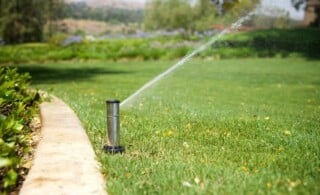 8 Water-Saving Home Renovations
8 Water-Saving Home Renovations 

Are You Familiar With This Topic? Share Your Experience.